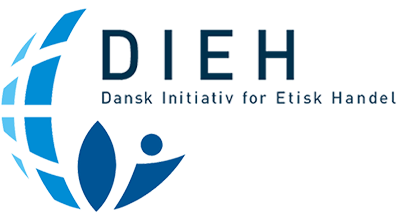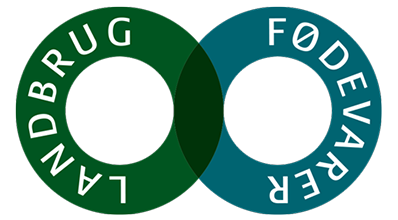Lay the foundation with a human rights policy and process
Put a policy in place or update the current one
Businesses must commit to respecting human rights and work to anchor the commitment in their organisations.
A human rights policy is a commitment by your company to respect human rights internally and in your value chains. Creating a separate document is not a requirement, but the human rights policy should be clearly stated, whether in its own document or added to existing policies. However, according to international guidelines, merely adding human rights to your company Code of Conduct is not sufficient.
The good human rights policy:
- Has been decided upon and approved by top management, e.g., signed by the CEO
- Includes an obligation to comply with internationally recognised human rights, as a minimum the rights in the International Bill of Human Rights and The International Labour Organisation’s Declaration on Fundamental Principles and Rights at Work
- Has been prepared with relevant internal and/or external expertise
- Includes an obligation to work to avoid adverse effects on human rights, as well as an obligation to remedy potential and current adverse effects
- Clarifies the company’s human rights expectations of employees, business partners and others directly related to the company activities, products, or services
- Distributed internally to employees and externally to partners and business associates
- Is publicly available on the company website or in another format
- Is reflected in your other operational policies and procedures, as well as in your daily operations.
After the policy has been drawn up it must be incorporated into daily company operations. To achieve this goal, we recommend that you set aside time – specifically allocated hours – to work with the policy within the company and that all relevant employees are involved in that process. Employees can be involved through union representatives or other formal collaboration structures in your organisation.
Developing your own specific policy is important, but you can download Arla Foods policy for human rights as an inspiration and starting point.
Tips to get started
If you do not have much experience with this kind of work, it may be a good idea to start with a ‘light version’ of a policy and take it up again later.
As a minimum, you can formulate a statement setting out your ambitions and plans for working in a structured way with human rights. Next, you can make a risk assessment and open a dialogue with your suppliers. When you have gained more experience with the practical part, you will be better positioned for preparing or updating the policy itself.
Integrate due diligence into your existing processes
If you already have a system such as ISO standards within quality, the environment or occupational health and safety management, you can extend the principles behind this system to also include due diligence for human rights – e.g., by including risks to people in your risk assessment and by continually looking for improvements.
Focal points for the food cluster:
- Working time and number of hours
- Salary and other benefits
- Discrimination
- Migrant and seasonal work
- Minority rights
- Humane and fair treatment
- Prohibition of child labour
- Prohibition of forced and slave labour
- Work environment and safety
- Accommodation for migrants and seasonal workers
- Industrial hygiene
- Chemicals and other hazards to human health
- Fire safety
- Building safety
- Rights to sick days and maternity leave
- Right to a private life
- Protection against abuse and harassment
- Freedom of expression
- Freedom of collective bargaining and organising
Who should be involved in formulating and anchoring the policy in the organisation?
- Top management, where strategic decisions are made
- Those responsible for compliance, e.g., HR and legal
- Purchasing and sales, incl. those responsible for business relations
- Product development, CSR, and daily operations
- Marketing and PR
- Trade union representatives/worker committees
The human rights policy is a dynamic document
Your policy is as a dynamic document and you might need to return to it after step 2, should you identify further focus areas when mapping your risks.
Special focus areas can arise if, for instance, you find that some ingredients or products, such as cocoa or vanilla, carry a particular risk of child labour. In such cases you are expected to update your policy with a special note on the respective risk area with reference to ILO’s Children’s Conventions No. 138 and 182.
The policy should cover the most serious risks to people in relation to your activities. We recommend that you revisit your policy on an ongoing basis, e.g., annually or every other year and consider the need for updating.
How do you use your policy as a day-to-day tool?
Your policy is an important tool for dialogue about respect for human rights, both internally and externally. Use it to stay focused, to make progress and maintain consensus in the subsequent performance of due diligence, and generally within your organisation.
Inspiration: How to integrate your policy into daily operations
At the meal box supplier Simple Feast, the focus on human rights and responsible trade is anchored in day-to-day operations as a regular part of the internal weekly procurement meetings:
“We’re working towards being able to evaluate our individual suppliers in relation to factors such as sustainability, CSR, and quality. These considerations are then built into a model that generates suggestions as to where we should make our purchases to strengthening overall sustainability.
When data is collected and entered into a model and automated to the highest possible degree, we can more easily integrate the information and ensure that it leads to real change and action on our part. The approach shifts the focus from “price” as the primary driver in assessing and deciding on procurement and ensures that decisions are, to a greater extent, based on sustainability parameters.”
Teis Lynfort, Director of Procurement, Simple Feast
The good human rights policy can:
- Strengthen and unify your organisation striving for responsible business operations
- Help to ensure that it is given priority, and necessary resources are allocated
- Be a significant and attractive statement to customers
- Reconcile expectations internally and clarify how you show respect for human rights
- Serve as a good starting point for dialogue on due diligence for new customer and supplier relationships
- Attract new employees, as more prefer to work in responsible companies
- Visualise how you work responsibly and set the direction for your future business
TOP TIP
Full operational integration is paramount. The policy in itself is worthless if it is not anchored in the organisation and integrated in day-to-day operations.
Take the time to involve everybody in your organisation so they understand what due diligence entails and can identify challenges and opportunities themselves. This could involve workshops or other company events with company-wide participation.
Are clauses needed?
To ensure that your suppliers comply with agreements on human rights measures, it is a good idea to add the agreements as clauses in your contract. They strengthen your bargaining power in case the risk of negative impacts increases in the future.
“When have we done enough?”
Human rights due diligence is not a project with a fixed end goal. It is an ongoing process, that must be engrained in the organisation and continuously updated and improved. In order to succeed, your company must set aside time and resources to strengthen this process. It is also vital that your efforts can be adjusted along the way, particularly in the event of violations.
Case stories from small and medium-sized businesses in the food cluster
Linking human rights policy and process at Nordic Fruit
About this guide
This guide is aimed at small and medium-sized businesses in the food cluster, i.e., companies with between two and 250 employees working in agriculture and horticulture, fisheries, fish farming, agroindustry, food production and ingredients. Human rights due diligence is relevant whether you are in the B2C or B2B market, importing, exporting or have your own production in Denmark.
The purpose of the guide is to assist SMEs perform human rights due diligence, regardless of size and resources of the company. The guide provides inspiration for how to begin and how to strengthen your current processes.
The guide was prepared by the Danish Initiative for Ethical Trade, in collaboration with the Danish Agriculture & Food Council and Arla Foods, and co-sponsored by the Danish Business Authority. The guide may not be changed, reproduced or translated without prior written permission from the Danish Initiative for Ethical Trade. If used in a teaching context, it must be with a clear acknowledgement of the partners behind the development of the guide, crediting them clearly, including use of relevant logos.



